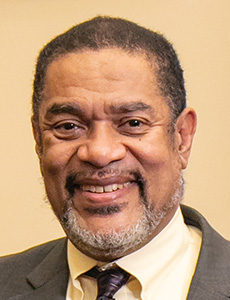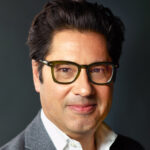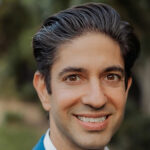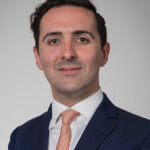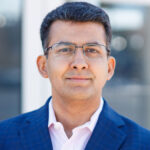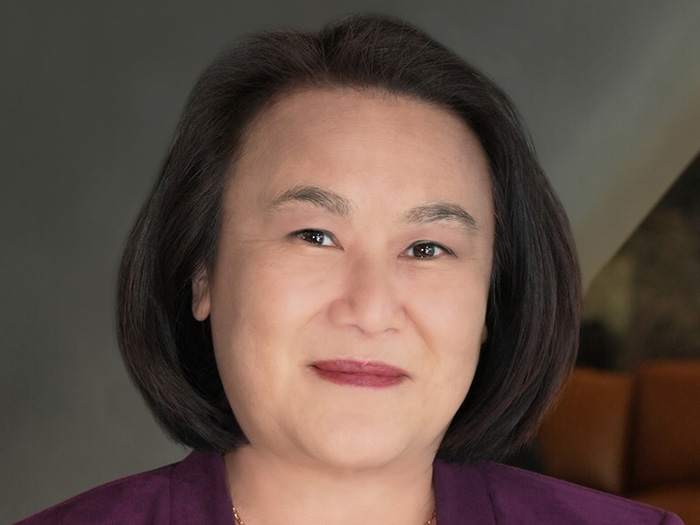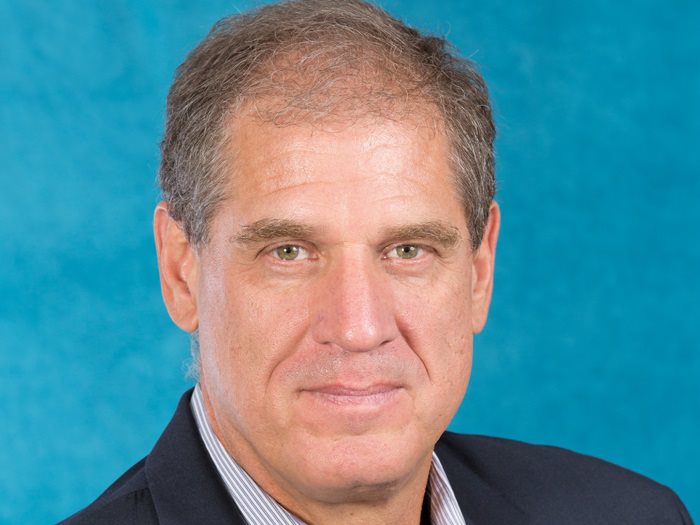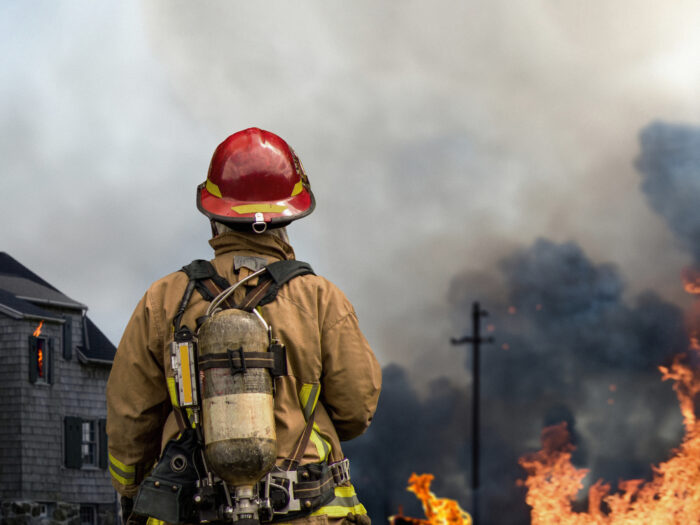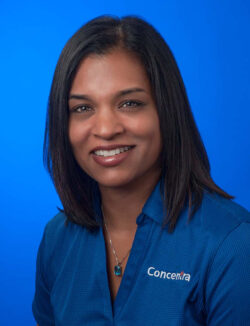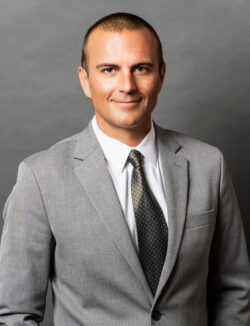Reflections on a Career in Risk Management: After 30 Years, Barry Scott Retires from the City of Philadelphia

After 30 years, Barry Scott, risk manager for the City of Philadelphia, is retiring.
He’s led the city through numerous risk management successes, including winning its second Teddy Award and procuring insurance for both a Democratic and a Republican national convention.
He has a career to be proud of, for sure. But his achievements extend beyond guarding the city. He’s mentored countless city workers, helped churches with risk management concerns and many other acts.
Serving the public and shielding workers from harm has given his work meaning. To quote Teddy Roosevelt, “The best prize that life offers is the chance to work hard at work worth doing.” It’s a quote that Scott’s work has embodied. Here’s a look at his long career, as a dedicated public servant.
From Science to Safety
As a child, Scott thought he’d pursue a career in science. His mother was a chemist and his uncle was a pharmacist. “I had the sense that science was something that I should be doing,” he recalled. Like many kids who want to emulate his parents, it was what he believed he should do.
He remembers going to some of the first Earth Day celebrations in the ’70s and settled on environmental science as a major. He studied at Rutgers University, where he focused on air pollution, but he quickly learned that “air pollution had an intimate relationship with calculus and I was not as intimately familiar with calculus,” he said.
While working on a project studying the hole in the ozone layer, he had the opportunity to connect with a researcher who was interested in industrial hygiene — the study of how chemical or physical hazards affect worker health. That sector hit home for Scott. He used to spend days in the lab with his mother when he was a child and he worried about her.
“I was really concerned about my mother’s safety,” Scott said. “That was how I got interested in this field and, and into that industrial hygiene world and then into the risk management world.”
He earned a masters in industrial hygiene from Temple University in 1978. From there, he held a variety of industrial hygiene positions working first at the chemical manufacturer Rohm and Haas, before making his way to OSHA.
In the late ’80s, he became the director of environmental health and safety at Thomas Jefferson University, an academic medical center. It was a monumental time to be working in these fields. OSHA was founded in 1971. The EPA was founded in 1970. The HIV/AIDS epidemic was the first Scott experienced while working with others to protect healthcare workers, researchers and patients at the facility. Scott moved to the City of Philadelphia in the 1990s as its first city safety director. He became risk manager in 2003.
“It was really exciting to be getting in on this on the ground floor,” Scott said. “I’ve been grateful to be able to serve the citizens.”
Protecting Major Events
Risk management for a city with over 25,000 government employees and over 1.5 million residents is no easy task. Philadelphia hosts major events, welcomes millions of tourists each year and is no stranger to celebration and crisis alike.
While Scott likes to quip that he “heard there was a constitutional convention here a couple 100 years ago — thankfully it was before my time,” he has seen the city through a number of major events, from a Super Bowl victory parade to free concerts on the parkway. Occasionally, the President will swing by, too.
During his tenure the City safely experienced four National Special Security Events — those of such national or international importance that the Department of Homeland Security considers them a potential target for terrorism. In these cases, the secret service will become involved in making a plan. Pope Francis’ visit and the DNC are two recent examples. These events present their own challenges. The City lost its law enforcement liability coverage shortly before it hosted the DNC. It had to act swiftly to get new coverage in place.
He spends many of his hours trying to figure out how to keep the city protected so residents can relax and enjoy these milestones.
Whatever the city brings to his desk, Scott tries to find a way to pull it off — safely, of course.
“We’re really working to try to get to yes, so that the city can do the things that it wants to do,” he said.
Part of the reason he’s driven to help the city hold whatever events it plans is because he’s seen how these experiences touch residents. He remembers how moved people were when Pope Francis visited and held mass, delivering his homily in Spanish, on the Benjamin Franklin Parkway.
“I’m so grateful that the Pope chose to come here and visit,” Scott said. “It really meant so much for so many people.”
Keeping Philly Safe
Those are the big events. What about the day-to-day task of protecting workers and managing Philly’s risks? For Scott, that’s important, too.
One of the first major challenges he encountered when he came to the City of Philadelphia: radiation exposures. After an office on Arch Street sent some furniture to a scrap disposal facility in New Jersey, a radium needle was found in the cabinet. City and EPA officials first thought the needle might have come from the Philadelphia General Hospital. When the municipal hospital closed, the city distributed its furniture to other government offices throughout the city.
Members of the Pennsylvania Bureau of Radiation Protection, the Department of Energy (DOE) Radiological Assistance Program from the Brookhaven National Laboratory, the DOE Nuclear Weapons Response Team from Las Vegas, and EPA Region 3 teams searched city offices over Columbus Day weekend to determine the extent of the exposure and if there was more furniture with radium in the City. Thankfully, they didn’t find any additional radium.
The search eventually uncovered that the cabinet hadn’t come from the hospital, but from a used furniture dealer. Documents found with the needle in the cabinet showed that it belonged to Dr. Albert Strickler. Only two City employees ended up having radiation exposure.
The many day-to-day risk management quandaries take Scott back to why he got into the field to begin with — protecting folks like his mom while they’re at work.
“Everybody is doing some work that is really serving to benefit someone who lives here,” Scott said. “Whether that’s the water department, making sure my house doesn’t float away during a period of incessant rain, or clearing sewers, or the streets department fixing potholes.”
His passion for keeping people safe and reducing risk extends beyond the office. He’s helped his church, which houses a daycare center, address concerns about lead paint and asbestos, since it’s an older building. More than anything, he wants to help people navigate the risks they face.
“We face a lot of risks in our lives and in the world,” Scott said. “There are many that can be safely managed.”
A Leader and a Mentor
Scott’s had an impressive career, but he’s proudest of the people he’s been able to mentor. He remembers two different women, one who started as a clerk typist and another who answered phones at the front desk, who grew their careers during his tenure. The former worked her way up to the position of senior claims adjuster and the latter is now the director of operations in Risk Management.
“We were all able to bring in folks who had skills and gifts and have them grow as professionals,” he says. “I am really honored to work with folks and to work in an organization where it doesn’t matter as much where you came from.”
He’s also proud to work in a city that has increasingly emphasized diversity and equity. Philly today is trying to actualize the lofty promises of freedom and equality the founders wrote into the Declaration of Independence. Promises that didn’t actualize themselves since only white, landowning men could vote and were protected by our founding documents.
“Another thing I’m proud and grateful for is that the city has been doing some work on equity over the last few years,” Scott said.
As for retirement, Scott and his wife have big plans: moving to Hawaii. It’s a location that has a special place in his memories. His wife pressured him to attend RIMS when it went to the island, but he didn’t think that would be a responsible use of taxpayer dollars. So he took her for their 10th anniversary instead. They’ve been back nearly every year since. There’s a lot he’ll miss about Philly, but he’ll be glad not to have to shovel snow, even if he can still see it on top of Mauna Kea.
“I can look at it from the beach and see it up there on the mountain,” Scott said. “I don’t have to be in that.” &

